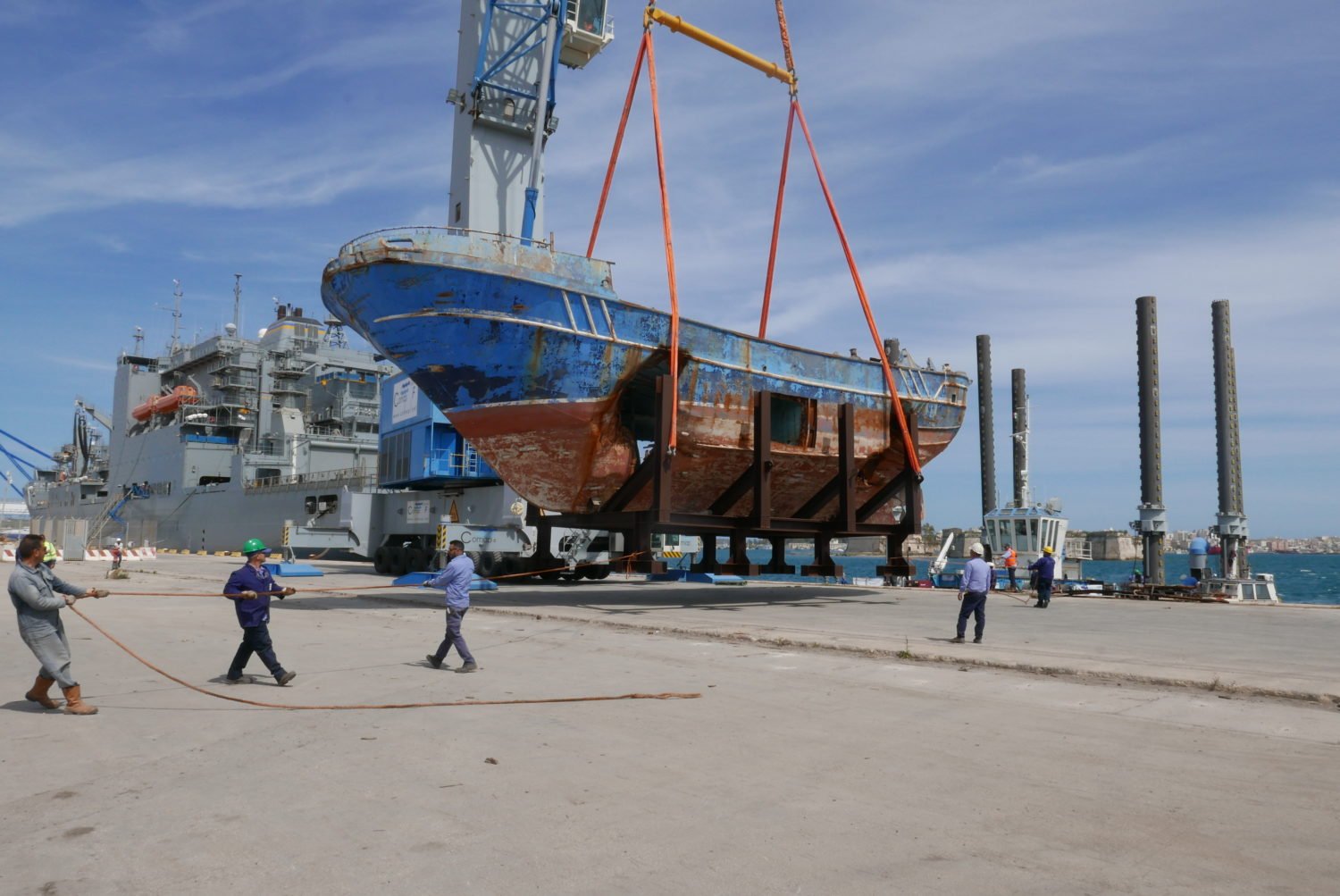
The remains of one of the deadliest migrant shipwrecks in recent Mediterranean history will be docked in Venice for the city’s biennale as part of a project by Swiss-Icelandic artist Christoph Büchel.
In April 2015, the ship—designed to carry a crew of 15 people—crashed into a Portuguese freighter and sank between the Libyan and Italian coasts in international waters. On board were between 700 and 1,100 people, of whom only 28 were recovered, according to a press release for Büchel’s project.
Since the tragic accident, according to the release, €33 million have been spent on the ship’s recovery and maintenance, fueling its politically charged symbolism, which various politics parties have gambled to control. Now, just over four years after the horrific crash, the boat will be moored at the Arsenale in Venice, a former shipyard were military boats were built. The project, called Barca Nostra (“our boat”) is part of curator Ralph Rugoff’s exhibition, “May You Live in Interesting Times.”
The project “is a relic of a human tragedy but also a monument to contemporary migration, engaging real and symbolic borders and the (im)possibility of freedom of movement of information and people,” according to the press release, which also says that Venice is “a city believed to have been founded by fleeing refugees.”
Büchel is known for making powerful political statements through his work. In 2015, as the Icelandic representative for the Venice Biennale, he installed a working mosque inside an former Catholic church, which Venetian authorities shut down soon after it opened, citing safety concerns. Last year, Büchel proposed turning Trump’s border wall proposals into Land Art.
The large vessel in Venice will stand as a testament not only to history, but also to current events. Since the beginning of 2019, an estimated 410 migrants have died at sea. The ship’s future after the biennale, however, is uncertain. But one proposal, made by a migrant initiative in Palermo, seeks to make it a mobile monument of the tragedy that could be presented throughout the European Union.
Christoph Büchel’s Barca Nostra will be on view in the 58th Venice Biennale International Exhibition “May You Live in Interesting Times,” Arsenale, Sestiere Castello Campo Della Tana, Venice, Italy, May 11–November 24, 2019